Live-Blogging the Vice-Presidential Debate
Republican Mike Pence and Democratic rival Tim Kaine face off at Longwood University in Farmville, Virginia.
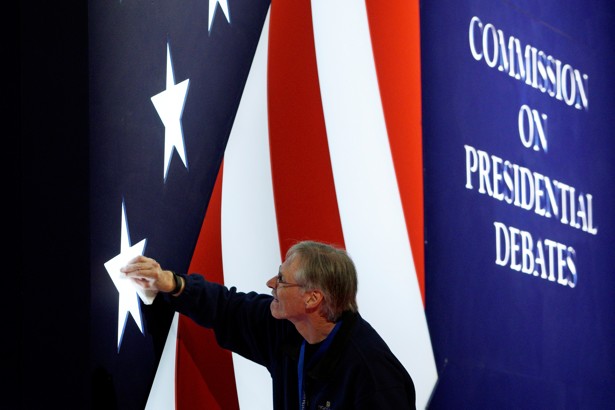
UPDATES
1 new update
The Vice-Presidential Debate Is a Battle of Cafeteria Catholics
Technically, Mike Pence no longer describes himself as a Catholic—he’s “a Christian, a conservative, and a Republican, in that order.” The GOP vice-presidential nominee shares something with his opponent Tim Kaine, though: Both men were raised in the Church in devout families, and both show why it’s nearly impossible for Catholic politicians to follow all the teachings of the Church while also participating in the Republican or Democratic parties. As I wrote last month, American politics, along with various factors like assimilation and partisanship in the Church, have forced virtually all Catholic politicians to become “cafeteria Catholics.”
Kaine and Pence share something else, too: Both men theoretically provide Christian credibility to campaigns that haven’t been overtly religious. Pence has been known to fight for religious freedom for Christian vendors who are opposed to gay marriage and for restrictions on abortions based on gender and disability—both strong resume lines for a veep hoping to appeal to conservative Republicans. Kaine, on the other hand, openly talks about his work with the Jesuits in Honduras during law school and isn’t afraid of a Bible-verse smackdown. He provides a consistent religious voice for the Democrats, whereas Clinton’s is only occasional.
It’s not likely that the moderator, Elaine Quijano, will ask the vice-presidential candidates a question about faith or the religious thinking behind some of their policy positions (see: poverty, refugee resettlement, abortion, the death penalty …). But if she did, the results would be fascinating—especially with Pence, who has been somewhat reticent to discuss his faith publicly on the campaign trail.
The GOP Declares Pence the Debate Winner—Before It Actually Starts
The debate hasn’t started yet, but the GOP has already declared Mike Pence the winner.
It looks like someone hit publish a bit too early on a post on gop.comthat appears to have been intended to go up after the debate. It’s titled “Who Won the Vice Presidential Debate” and declares that, well, Trump’s running mate did. “Americans from all across the country tuned in to watch the one and only Vice Presidential debate,” the post reads. “During the debate we helped fact check and monitor the conversation in real time @GOP. The consensus was clear after the dust settled, Mike Pence was the clear winner of the debate.”
Because the page was almost immediately deleted, here’s a screenshot for posterity’s sake:
And it looks like the declaration of a Pence victory wasn't the only thing the GOP published too early. Here are two other posts that showed up on the site ahead of the 9 p.m. showdown:
Donald Trump, Pundit?
You didn’t think Donald Trump was going to let Mike Pence get all the attention tonight, did you?
Trump has been reluctant to give up the spotlight throughout his campaign for the presidency, and that will continue on Tuesday night, as the Republican nominee is pledging to “live tweet” the vice-presidential debate.
It’s not clear whether this will be Android-phone Trump in all of his wake-up-at-3-a.m.-and-grab-the-phone glory, or whether this will be more standard “fact-checking” from a campaign staffer in Trump’s name (a.k.a. iPhone Trump). But this continues a pattern of Trump injecting himself into moments where his less-exciting running mate would otherwise be the center of attention. Trump appeared onstage to embrace Pence after he accepted the vice-presidential nomination in Cleveland. And when Trump introduced the Indiana governor as his running mate, he memorably devoted much of the half-hour speech to himself. (“Back to Mike Pence,” he said at one point.)
Trump’s Twitter activity on Tuesday night might be appropriate, however. Like so much of this presidential race, the debate between Pence and Tim Kaine is expected to focus mostly on him.
Kaine and Pence Do Their Homework
Tim Kaine watched the first 2016 general-election debate in jeans and tennis shoes last week.
“I wish I could actually hang and watch it with you, but I’m actually doing homework tonight,” Kaine told a debate watch party in Orlando. “I have to go sit down and get in the zone and with a yellow pad, you know, take a million notes.”
The Virginia senator has been preparing to face Republican vice-presidential nominee Mike Pence, the current governor of Indiana. Tuesday night is the only vice-presidential debate of the cycle, and one of the few opportunities for the two to introduce themselves to a national audience before Election Day—so they might as well practice, right?
GOP standard-bearer Donald Trump barely rehearsed for the presidential debate, which polls showed he lost decisively to Hillary Clinton. Trump’s campaign advisers intend to alter his approachahead of the next presidential debate. But they didn’t have to persuade Pence to do debate prep. “I am doing a little preparation for it. And a little bit more traditional than my running mate,” Pence told conservative radio host Hugh Hewitt.
Just last week, Pence met with Wisconsin Governor Scott Walker, who was Pence’s stand-in for Kaine, to get ready for the debate. ABC reports that Pence’s preparation goes even further back: “According to a Pence aide, Pence has been preparing for the debate ‘since the night he received the call from Mr. Trump.’” On Tuesday, Pence will likely be asked to vouch for his candidate, who has been embroiled in controversy since announcing his campaign, while also defending his own record.
Kaine, too, will have to defend Hillary Clinton’s candidacy. Just like his running mate prior to the first presidential debate, Kaine has been focused on preparations. Robert Barnett, a D.C. lawyer and agent, pretended to be Pence during Kaine’s debate practice.
“It’s a different kind of a debate for me because I have done debates where it’s at the end of it, ‘please vote for Tim Kaine,’” he told reporters. “If I talk too much about Tim Kaine during my debate I’m wasting my time. It would not be a good way to use of my time and it is about two visions for the country.”
Both candidates are faced with the same task—to defend, and speak for, their running mates and their visions. The question is: Will practice make perfect?
Tim Kaine Will Have to Be the Latino Whisperer
Among the feats Tim Kaine will have to pull off during tonight’s vice-presidential debate will be using his unofficial role as the Democrats’ Latino whisperer to signal to 27 million Latino voters that the Democratic ticket knows and cares more about them than their Republican counterparts do.
As a senator and former governor of Virginia, where the debate is being held, Kaine has had a chance to practice his message with a diverse and growing population of Latinos. Virginia has the 15th largest Latino population in the country, with 732,000 Latino residents. Overall, these Virginians constitute 9 percent of state residents, including 277,000 eligible voters, according to Pew Research Center. And even though they represent only 5 percent of registered voters in the state, this swath of the “sleeping giant” that is the national Latino vote could be significant.
More importantly, Latinos in Virginia may be more representative of the diversity of their ethnic group—the largest in the country—than those most Democratic presidential campaigns have historically targeted: lower-class immigrants.
Almost half of Latino voters in Virginia are millennials (44 percent), that elusive demographic Democrats desperately need to win in November. They were either born Americans (68.1 percent) or became naturalized citizens (38.9), according to Pew. They are more educated than the average American, with 64 percent possessing a two-year degree, some college, or a four-year degree. (Nationally, 59 percent of Americans have some college or some sort of degree.) Latino voters in Virginia also represent multiple groups: Mexicans (20 percent), Puerto Ricans (22 percent), Salvadorans (15 percent), and still others. They are also more affluent than the average Latino and average Virginian, with over 59 percent of households earning $75,000 or more annually. By contrast, the average Virginian household income is $64,000, and the average U.S. household income is $52,000.
In short, the candidates’ message tonight has to be about far more than immigration. With Virginia still firmly in the purple column, both parties would do well to bring a sophisticated message of economic and social inclusion, mutual financial prosperity, and future possibilities based on core American values. The emerging Latino voter will likely not settle for less than a fully engaged presidential ticket that values her culture and its contribution.
What Will Bill Weld and Ajamu Baraka Do Tonight?
Libertarian vice-presidential nominee Bill Weld and Green Party veep pick Ajamu Baraka will not be standing on the main stage for tonight’s debate. But they’re going to try to get their message out all the same.
Baraka is slated to appear on the left-leaning news program Democracy Now. According to the show’s website, Democracy Nowwill air the vice-presidential debate between Tim Kaine and Mike Pence and “‘expand’ the debate by giving third-party candidates a chance to respond in real time to the same questions.” The website notes that “Baraka has already agreed to participate” and an invitation has been extended to Weld. A public schedule sent out for Weld earlier in the week, however, indicated that he’d be watching the debate and live-tweeting from Atlanta, Georgia. (A campaign spokesperson confirmed that Weld will be tweeting, and “no, he won’t be appearing on Democracy Now.”)
Gary Johnson and Jill Stein, the Libertarian and Green Party’s respective presidential nominees, did not qualify for the first presidential debate because they failed to meet the 15 percent polling threshold set by the Commission on Presidential Debates. Not making the debates makes it even more unlikely that either campaign will be able to reach within striking distance of either major-party candidate. Of course, the odds are always steep for third-party campaigns, so neither Johnson nor Stein is likely to capitulate as a result.
Longwood University Is Ready for Its Close-Up
It's safe to say that Longwood University is pretty thrilled to be hosting tonight's first and only vice-presidential debate.
The Twitter account for the 177-year-old Virginia institution has been all aflutter the past few days, chronicling its president's news appearances, its auditorium's fancy debate trappings, and a student ticket raffle for the main event. In the last year, since administrators learned they'd beat out dozens of other campuses to play host, university buildings have seen a TV-friendly facelift, and the school has held multiple events to get students pumped up. It’s even created or reoriented classes to focus on the debate, as my colleague Emily DeRuy has reported.
This excitement is surely, at least in part, sincere: The small liberal-arts university—located in Farmville, Virginia, population 8,000—gets to participate in American history in the making. If one of the candidates makes a major gaffe, for example, Longwood will long be noted as the place where it happened. If a future news report were to read, “Mike Pence decided to quit the Trump campaign in the middle of the vice-presidential debate at Longwood University in Virginia,” history would remember the first part of the sentence, while Longwood would cheer the latter.
But all this hype is also strategic: an effort on the part of the university to raise its profile and make money. The Washingtonianreports:
For a little-known school, a debate isn’t just a chance to see celebs. It’s a way to put yourself on the map—with all that means for enrollment and the bottom line. Within 24 hours [of learning it would host], Longwood launched a website and held a campus rally. ... The school has since sent debate-themed goodie bags to potential students and plastered ads on Capital Bikeshare depots in DC.Is the spotlight helping? So far, says [President W. Taylor] Reveley, Longwood has gotten contributions from about a thousand more donors than it had at this point last year. [Vice President Victoria] Kindon is planning a survey for after the debate to gauge shifts in the university’s reputation and alumni satisfaction.
Longwood students, who number around 5,000, have volunteered in droves to help with logistics. School pride aside, this makes sense: The better their school looks, the better they look. “It’s just really exciting because we’re starting to see on Fox and CNN and other channels ‘Longwood University,’” a student-government member told a Richmond CBS affiliate. “We’re very excited to see our name getting out to the whole world.”
Pence And Kaine Want You To Think They're Boring
The 2016 vice-presidential schtick is that both candidates are lame.
Tim Kaine cheerfully admitted he’s “boring” on Meet the Press. “But you know, ‘boring’ is the fastest growing demographic in this country,” he added, an observation equal parts saccharine and confusing. Mike Pence is equally self-effacing, calling himself a “B-list Republican” on the campaign trail. The two men, who will meet at Longwood University in Virginia to debate on Tuesday night, have each styled themselves in the least offensive way possible, perhaps hoping to invite only dad jokes or shrugs in a year of polarizing candidates.
This, of course, is political fiction. While Kaine and Pence might not have profiles to rival their presidential counterparts, both have spent time in national offices: Kaine is a United States senator and the former chair of the Democratic National Committee, having previously served as Virginia’s governor and the mayor of Richmond. Pence served in Congress from 2000 to 2013, and is currently the governor of Indiana. Each man has embraced his vice-presidential duties and become a booster and money-raiser for his ticket, careful not to steal the show like certain others who have taken on that role. And yet, Kaine and Pence have both overseen distinctive policy approaches in their states––at times conflicting with the platforms of the nominees they’re now supporting.
When Kaine was picked to join Hillary Clinton’s ticket, he was widely considered a “safe” choice: He hails from a swing state, he’s a centrist Democrat, and his background is free of Clinton- or Trump-style scandal. But for those farther left in the Democratic Party, the choice was less than ideal: Kaine has been a strong supporter of free trade, accusing advocates of protectionism of having a “loser’s mentality,” along with interventionist foreign policy––similar stances to Clinton’s, but ones she has tried to underplay on the campaign trail. Kaine, a lifelong Catholic, also has a streak of social conservatism: During his time in office, he’s moved to embrace pro-choice positions, but still doesn’t support the repeal of the Hyde Amendment, which prohibits the use of federal funding to pay for abortions. The GOP even went to the trouble of compiling a list of all the ways Tim Kaine is “Sanders’s Backers’ Nightmare” before he was nominated this summer. These issues will make for particularly good debate fodder, especially for progressives choosing between Clinton/Kaine and, for instance, Jill Stein.
Pence, on the other hand, was presumably picked to reassure conservative Republicans that Donald Trump would be their man. He’s well-known in Indiana for his support for a religious-liberty billthat brought national attention––and protests––last year. He signed legislation this spring that banned abortions on the basis of genetic abnormality and mandated funerals or cremations for fetuses. He’s also supported other conservative causes, like charters and vouchers, and opposed Common Core; he was strongly pro-free trade and has advocated for increased national military spending. On a few issues, though, he has gotten into conflict with Trump; in December, for example, he criticized calls for a ban on Muslim immigration as “offensive and unconstitutional,” a comment clearly aimed the man who is now his running mate. Questions about immigration and perceived bigotry could prove particularly revealing on Tuesday night, especially as Pence tries to fulfill his role as Trump’s apologist.
The two vice-presidential candidates are unlikely to draw the record-breaking 84 million estimated viewers who tuned in for the first presidential debate, but their face-off is important.
One of these men will play back-up to the next president, providing support on policy and preparing to step into the role of commander-in-chief if anything bad were to happen. Heck, if Pence cut a deal with Trump anything close to the one reportedly offered to Ohio Governor John Kasich in May, he could be the one “in charge of domestic and foreign policy” come January.
If nothing else, the two men might offer some clarity on their respective platforms; they’ll probably spend more debate time on policy than name-calling, unlike their presidential peers. After all, the story goes, Kaine and Pence are just two nice guys. We’ll see if they live up to that reputation––the debate, along with our team’s regular live blog, will kick off at 9 p.m. ET.

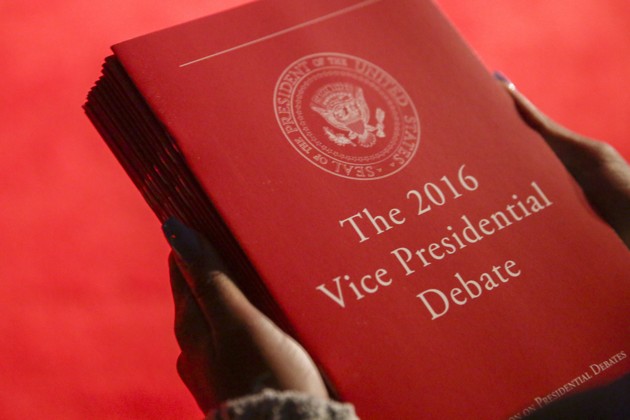

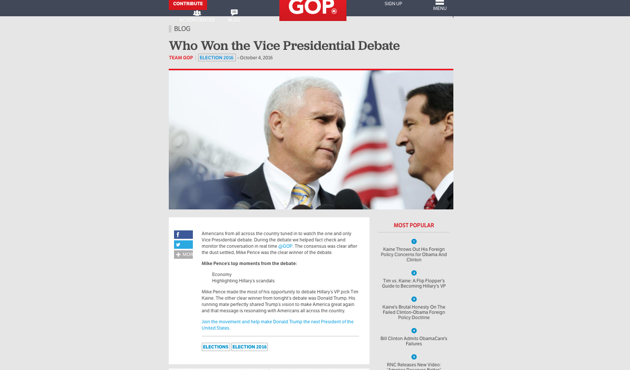
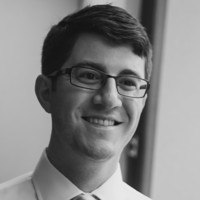
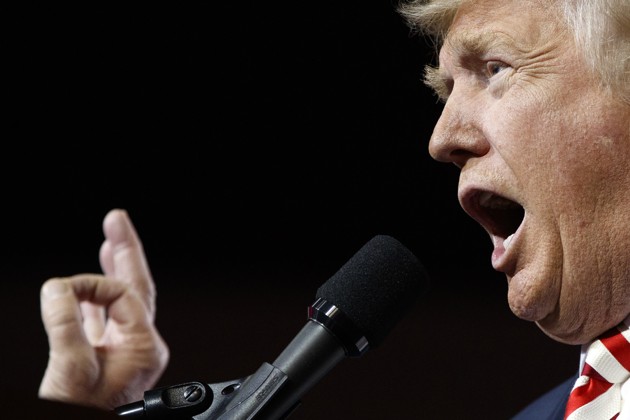

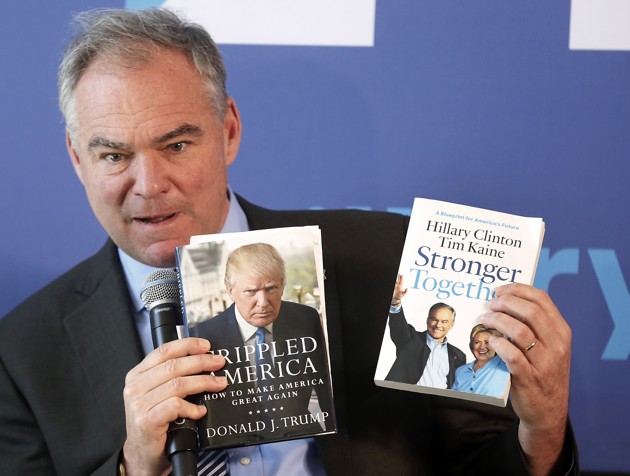

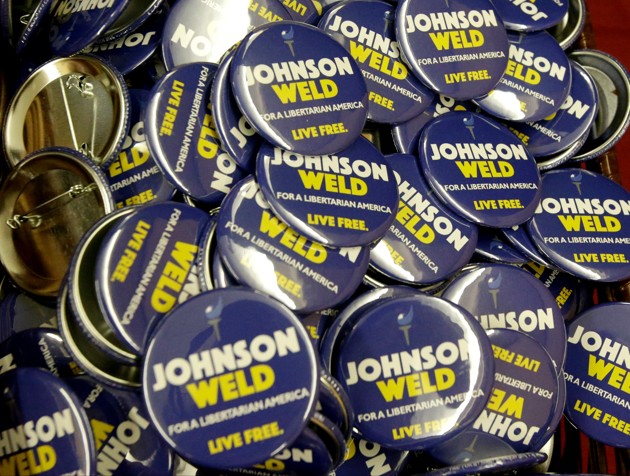

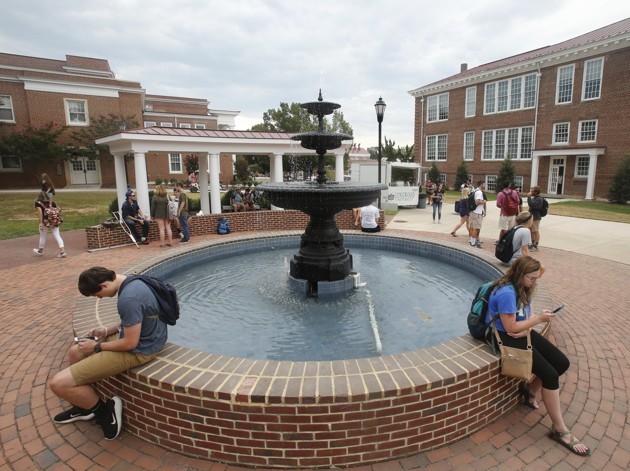
No comments:
Post a Comment
Please leave a comment-- or suggestions, particularly of topics and places you'd like to see covered